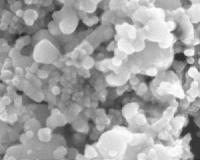 |
Montevideo, Uruguay (UPI) Oct 12, 2010 Uruguay is being courted by oil-rich Saudi Arabia as one its strategic food security partners that could meet some of the Persian Gulf kingdom's demand for food and grain. Saudi Arabia is spending tens of billions of dollars to turn its dry, harsh sandy terrain into agriculture-friendly areas. The program has had mixed results and subsidies remain the major source of sustenance for the kingdom's ambitious agricultural development. Uruguay, one of the largest dairy, grain and meat producers in South America, has set its eyes on Saudi Arabia's lucrative market for a whole range of food exports including meat prepared according to Islamic principles. Saudi Arabia and other Middle East countries import South American meat, often prepackaged after slaughter according to halal principles, which conform to Islamic dietary restrictions and is often comparable to Jewish kosher standards. Many devout Muslims routinely accept kosher meat for consumption when halal meat isn't available. A Saudi ministerial delegation in Uruguay is exploring ways in which the kingdom can forge a food security partnership with the Latin nation. Uruguayan President Jose Mujica said he was playing host to the Saudi delegation as part of a national strategy to diversify markets for Uruguayan farm produce. "Our policy should be to sell to as many markets as possible and not concentrate on two or three large buyers," said Mujica, adding the two countries shared overall strategic aims. Saudi Agriculture Minister Fahd bin Abdul-Rahman bin Sulaiman Balghunaim accompanied Uruguayan counterpart Tabare Aguerre on visits to dairy, sheep and livestock farms and a horse breeding ranch. They also visited Nueva Palmira, Uruguay's main export terminal for grains, oilseeds and pulp and Barraca Erro, an animal feed and oil processing plant used for exports to the United States and Japan. Last week, the kingdom played host to Saudi Agriculture 2010, the biggest business-to-business agriculture and food event in the Middle East, in its capital, Riyadh. The trade show highlighted new business opportunities in agriculture, water resources and infrastructure. Saudi Arabia has allocated more than $12 billion to develop its agriculture sector. Running alongside the show are Saudi Agriculture 2010, Saudi Agro-Food 2010 and Saudi Food-Pack 2010. Mohamad Al Hussaini, deputy general manager, Riyadh Exhibitions Co., said Saudi Arabia is the largest economy within the Gulf Cooperation Council, the world's top food-importing region. "With a population of roughly 28 million people, the kingdom has immense food demands that the government intends to meet by boosting spending on agriculture and related sectors," said Al Hussaini.
Share This Article With Planet Earth
Related Links Farming Today - Suppliers and Technology
 New Approaches Needed To Gauge Safety Of Nanotech-Based Pesticides
New Approaches Needed To Gauge Safety Of Nanotech-Based PesticidesCorvallis OR (SPX) Oct 11, 2010 Nanotechnology is about to emerge in the world of pesticides and pest control, and a range of new approaches are needed to understand the implications for public health, ensure that this is done safely, maximize the potential benefits and prevent possible risks, researchers say in a new report. In a study published in the International Journal of Occupational and Environmental Health, scie ... read more |
|
| The content herein, unless otherwise known to be public domain, are Copyright 1995-2010 - SpaceDaily. AFP and UPI Wire Stories are copyright Agence France-Presse and United Press International. ESA Portal Reports are copyright European Space Agency. All NASA sourced material is public domain. Additional copyrights may apply in whole or part to other bona fide parties. Advertising does not imply endorsement,agreement or approval of any opinions, statements or information provided by SpaceDaily on any Web page published or hosted by SpaceDaily. Privacy Statement |